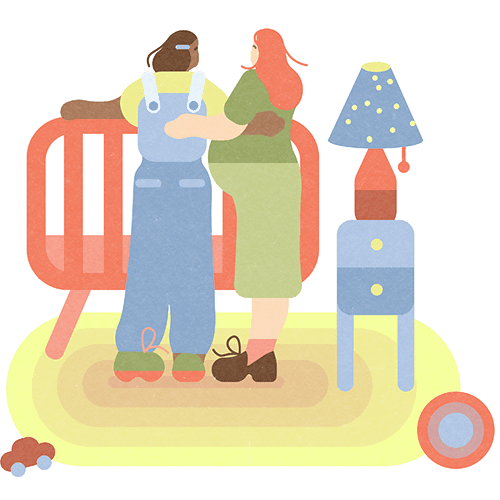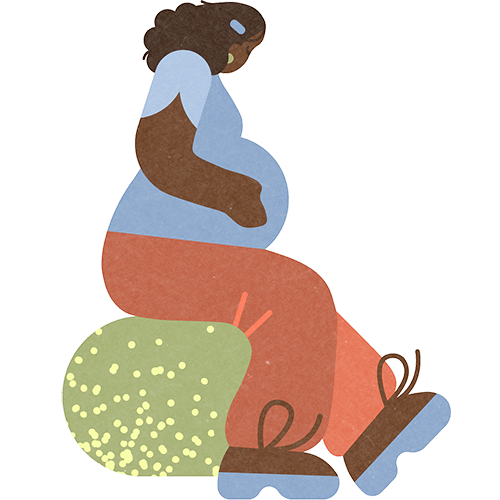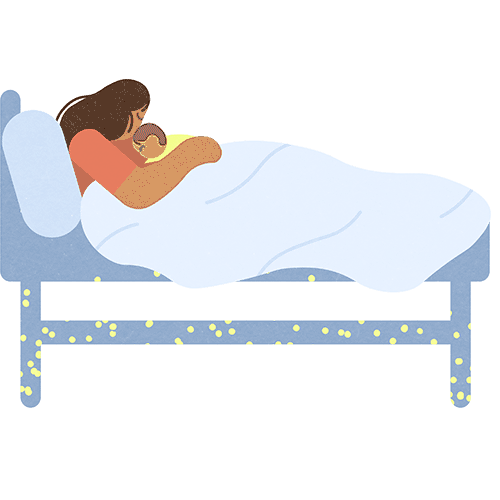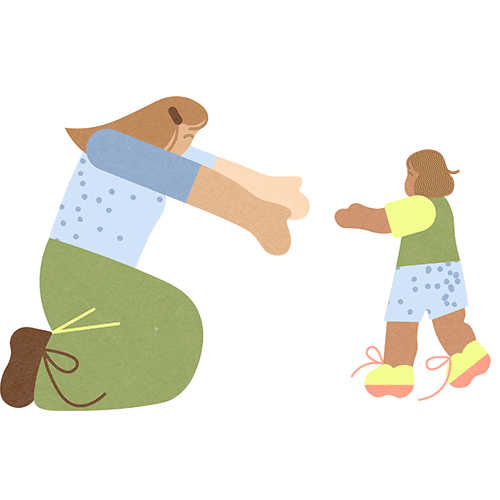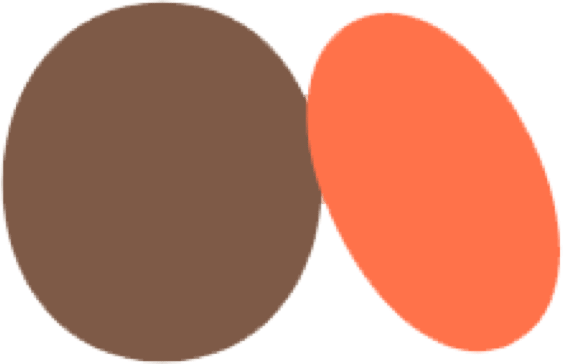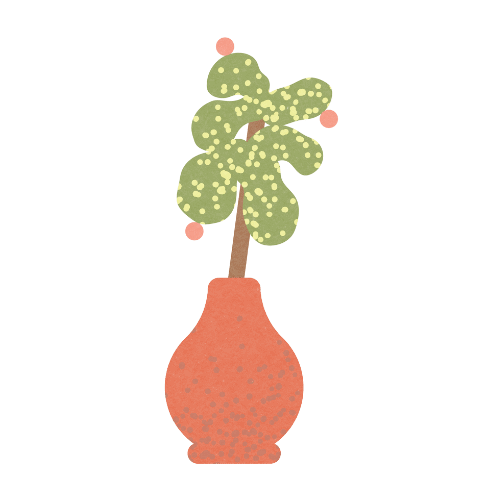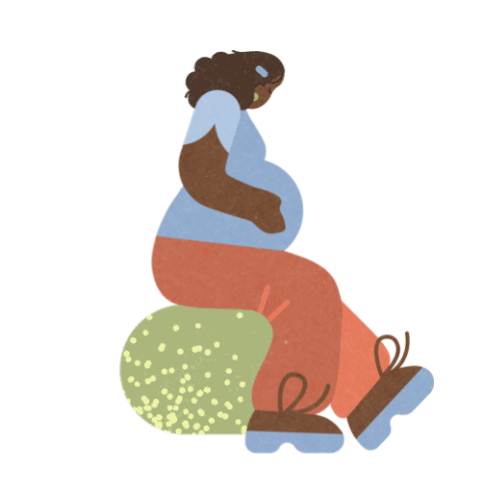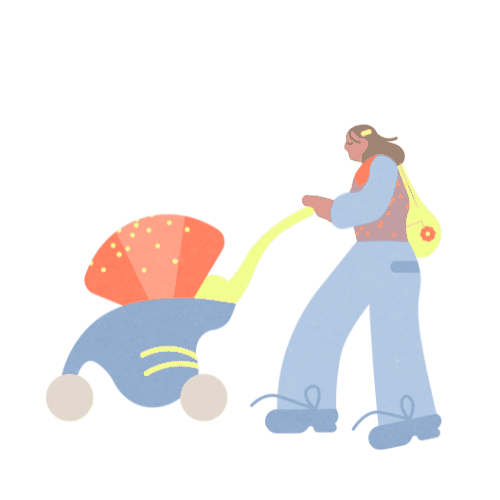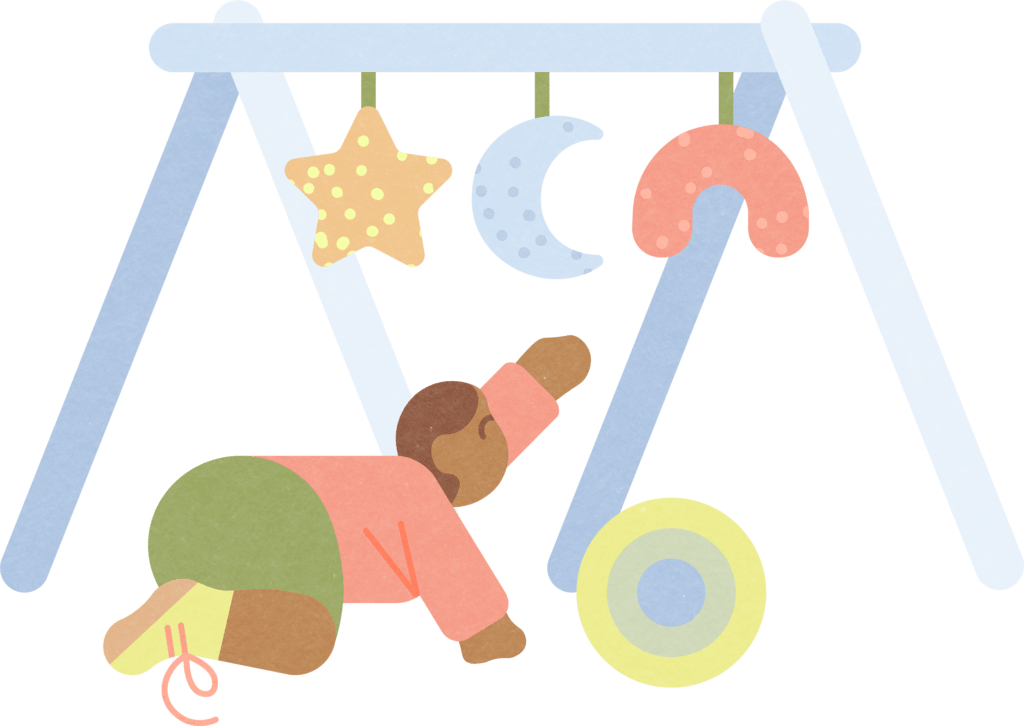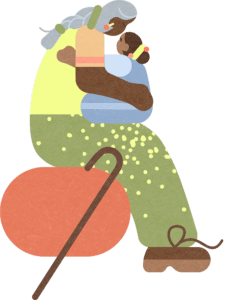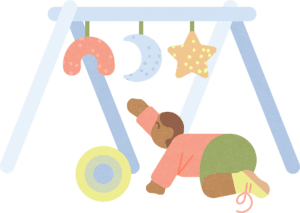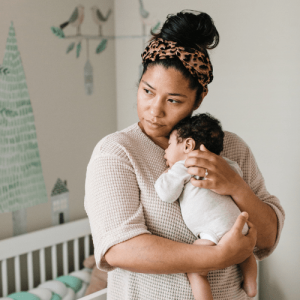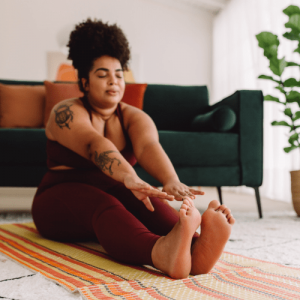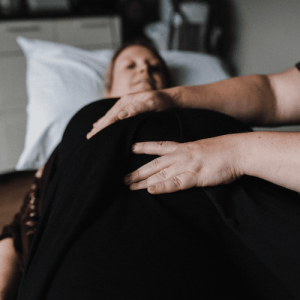Occupational Therapy
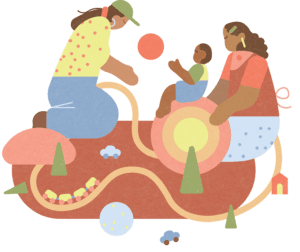
What is Occupational Therapy?
The term Occupational Therapy can be confusing; we find that it is usually most helpful to start with clarifying what an ‘occupation’ is. For an occupational therapist, occupations are defined as activities and tasks of everyday life. Put simply it is “whatever occupies your time”, including looking after yourself (self-care), enjoying life (leisure), and contributing to the social and economic fabric of communities. As an adult, this can refer to basically anything that you spend time doing during the day, such as sleeping, working (paid and unpaid), education, caring for others, self-care, leisure time, eating, driving, sex, showering….all of it! For a baby, it refers to things like growing, moving, feeding, sleeping, and so on.
Occupational Therapists assist with the transition to parenthood, including helping parents find systems and routines to help with the changes in your daily life whether you are trying to get pregnant, are currently pregnant or already have a family. Our Pediatric Occupational therapists help your children with their milestone development and other developmental goals.
Occupational Therapy for Fertility in Toronto & Newmarket

Occupational Therapy during Fertility can help you find routine, calm and structure in the unknown
If you’re trying to get pregnant, it can feel a bit like a full-time job. Having support with optimizing your day-to-day activities is crucial – an Occupational Therapist can work with you to determine which parts of your day are proving to be the most challenging and then help you come up with solutions and routines to ease the load.
Occupational Therapy is here to make your life easier.
Prenatal Occupational Therapy in Toronto & Newmarket

Easing the stress of pregnancy with Occupational Therapy
Pregnancy is a major life transition, with daily changes in your body – but the changes are not only physical.
Occupational Therapists are uniquely positioned to assist with the transition to parenthood, including helping parents find systems and routines to help with the changes that are inherent with your daily life when you are pregnant.
Occupational Therapists are also experts in helping you define and create boundaries around your changing role and identity.
Working with an Occupational Therapist can give you the ease you are looking for as you transition into parenthood.
Postpartum Occupational Therapy in Toronto and Newmarket
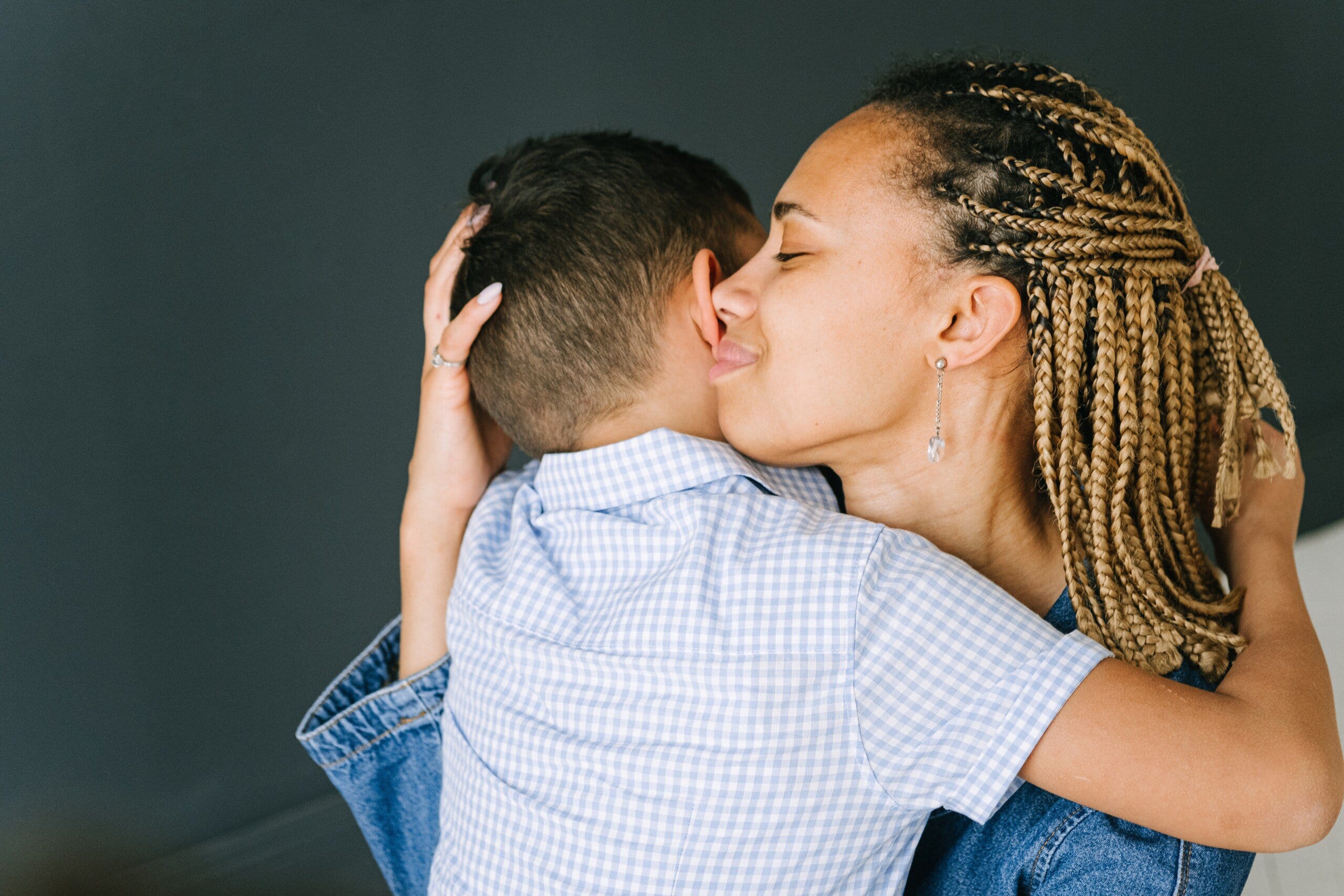
The transition to motherhood with Occupational Therapy
Becoming a mother is a major life transition and the experience is as unique as each mother and baby pair. During this important transition, postpartum “occupations” (the things that occupy your time) are significantly impacted. While we have tons of support for the physical and medical aspect of conception, pregnancy, and childbirth, too often, little attention is given to the non-medical aspects of becoming a parent.
Most women and pregnant people know inherently that conceiving, nurturing a pregnancy, experiencing the birth of your baby, and becoming a mother is NOT just physical.
Occupational therapists are uniquely equipped to support and collaborate with women on their pregnancy, birth, and new mom journey. An occupational therapist can address many of the challenges women face when transitioning to motherhood including the complexities of establishing new healthy roles and routines, fostering attachment with their new baby, and coping strategies to ease that transition.
How Can Occupational Therapy Help Me?
“Welcoming a baby into the family is incredible, but it can certainly come with its own unique challenges. All babies are different and as parents gradually learn about their baby there can be many questions and worries. “
Occupational therapy can help educate women on common pregnancy and parenting challenges, and develop both realistic expectations and effective coping strategies focusing on co-occupations between mother/parent and infant to enhance bonding, increase confidence in supporting healthy development, engage in enjoyable age appropriate play, and identify atypical situations early to facilitate optimal intervention.
- Discover relaxation strategies
- Manage anxiety and depression
- Enhance sleep and increase energy levels
- Troubleshoot and plan effective coping strategies for potential obstacles before they arise
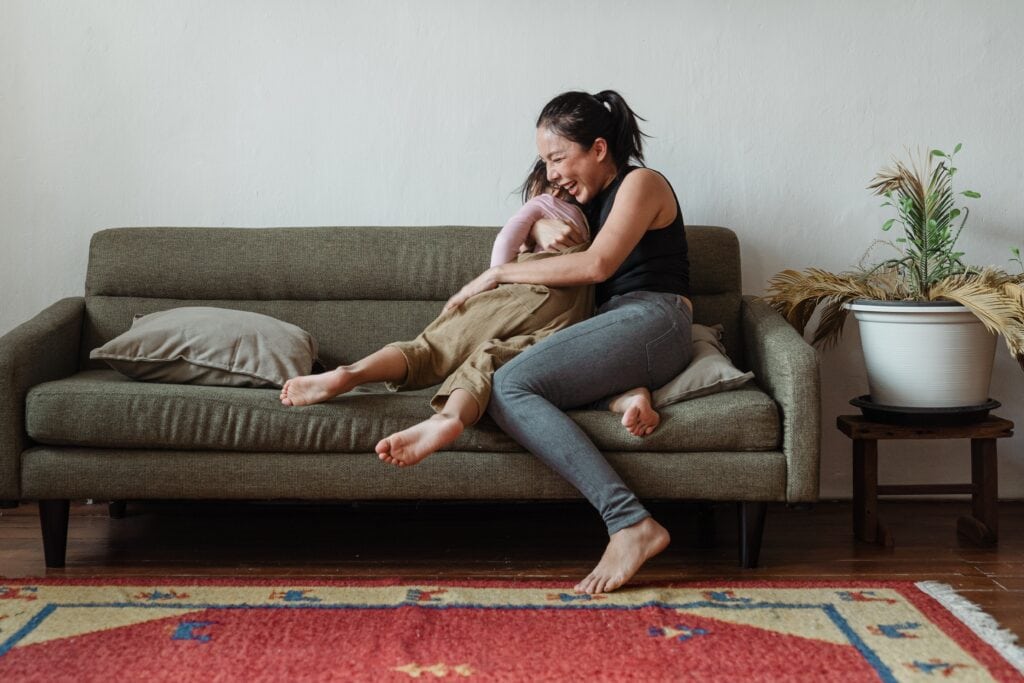
Pediatric Occupational Therapy in Newmarket & Toronto
The term “Occupational Therapist” is a bit confusing when it comes to kiddos. Given that we’re used to the term “occupation” meaning “job”, it can seem like a misnomer.
With Occupational Therapists, the definition of “Occupation” is simply “whatever occupies your time”. In the case of infants and babies, they spend their time growing, learning, playing, eating, sleeping, learning to crawl and walk, learning to communicate, and more.
With older children, it may also mean learning to cope with schoolwork and the demands of school, homework, social interactions, dealing with sensory issues, and more.
Occupational therapists work with babies and kiddos and their families from infancy right through to college to facilitate participation, appropriate growth and development and encourage independence. Occupational therapists are experts at coming up with functional strategies for each family’s unique needs.
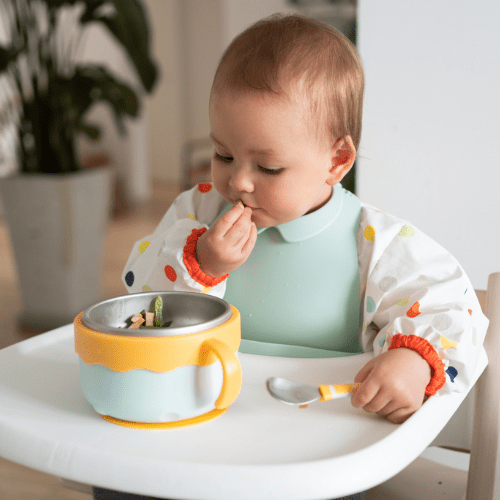
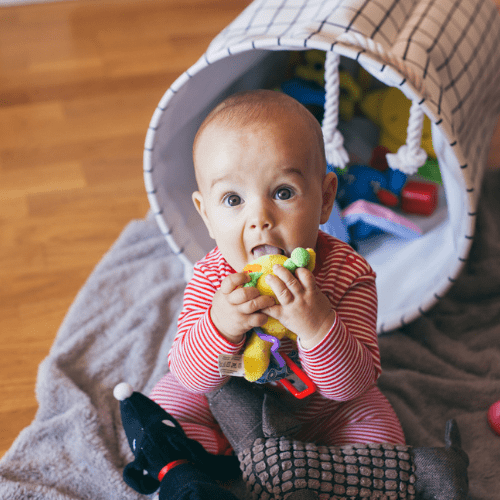
Welcoming a baby into the family is incredible, but it can certainly come with its own unique challenges.
All babies are different and as parents gradually learn about their child there are always many questions and worries.
Infant or Pediatric Occupational Therapy services are available online and in-person. An occupational therapist works with your baby, one-on-one, to assess and address any concerns regarding your baby’s motor development, feeding skills, play skills, and other physical and neurological development.
Pediatric occupational therapists can assess the following in babies and children:
- Delayed Gross Motor Skills (e.g. not crawling, sitting, walking, rolling on time )
- Delayed Fine Motor Skills (e.g. issues using holding toys, cutlery, scissors, etc)
- Low or excess muscle tone (e.g. floppy, poor or limp muscles tone)
- Feeding challenges (e.g. heightened sensitivity to certain textures, overly picky, difficulty transitioning to solid food)
- Sensory related issues (e.g. over or under sensitive to noises, textures, tastes, sensory seeking)

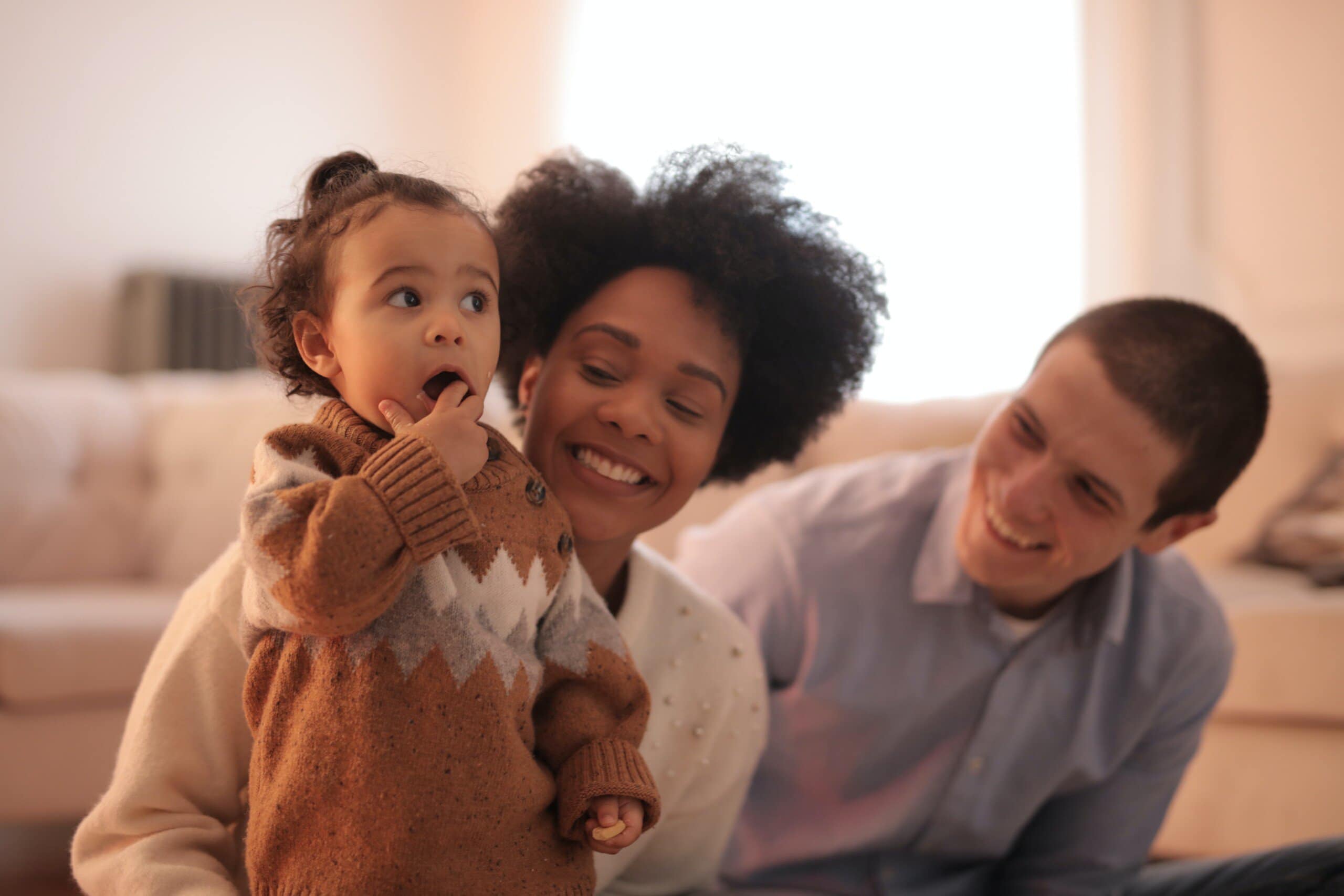
Pediatric occupational therapy can also help in these areas:
- Strategies to address challenges transitioning to solid foods
- Strategies and therapy for babies who have sensory sensitivities
- Autism assessment
- Exercises and play for babies with motor development delays
- Strategies to minimize plagiocephaly/flat head syndrome
- Stretches and exercises for torticollis (wry neck)
- …and more!
Paediatric Occupational Therapy Packages
Starting Solids Consultation
This appointment is for caregivers who are looking for individualized guidance and support in the early months of introducing solid foods to your baby.


Feeding Success
This appointment is suitable for those who are well underway with eating solids but continue to have questions or concerns about how your little one is managing or progressing.
Picky Eater Assessment
This 2-appointment package and full report is for those families that have children that are particularly picky eaters. Kiddos who have a very limited palate, who are overall very picky, and who are generally hard to feed.


School Readiness Assessment
This appointment package is suitable for those with kiddos who are just getting ready to go to school for the first time, or who have had kiddos in school for some time now but find that they need a bit more help.
Infant & Early Development Check
In this appointment, the Occupational Therapist will assess your baby’s development, looking at physical, cognitive, social-emotional status, adaptive behaviour and functional language skills for age-expected development.
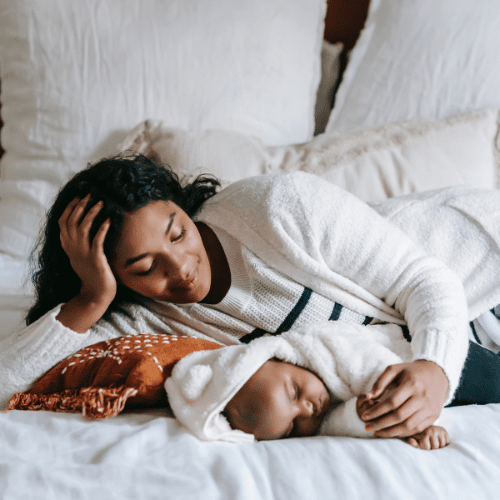
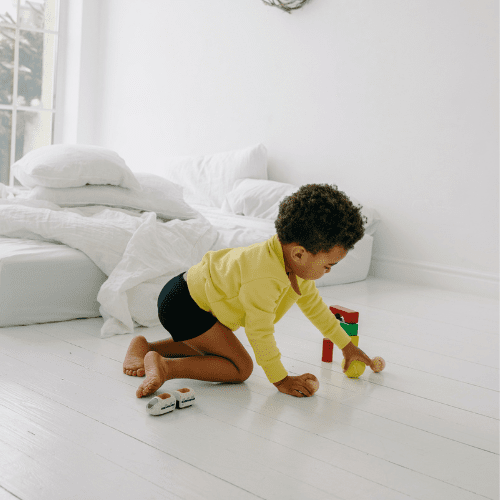
Sensory and Self-Regulation Assessment
This 2-appointment plan is for those families that are concerned about or have questions about how their child’s sensory processing is impacting their self-regulation, emotional regulation and other daily activities.
Fine Motor Assessment
This appointment is for those families that have questions or concerns about how their child is progressing with fine motor skills and activities.
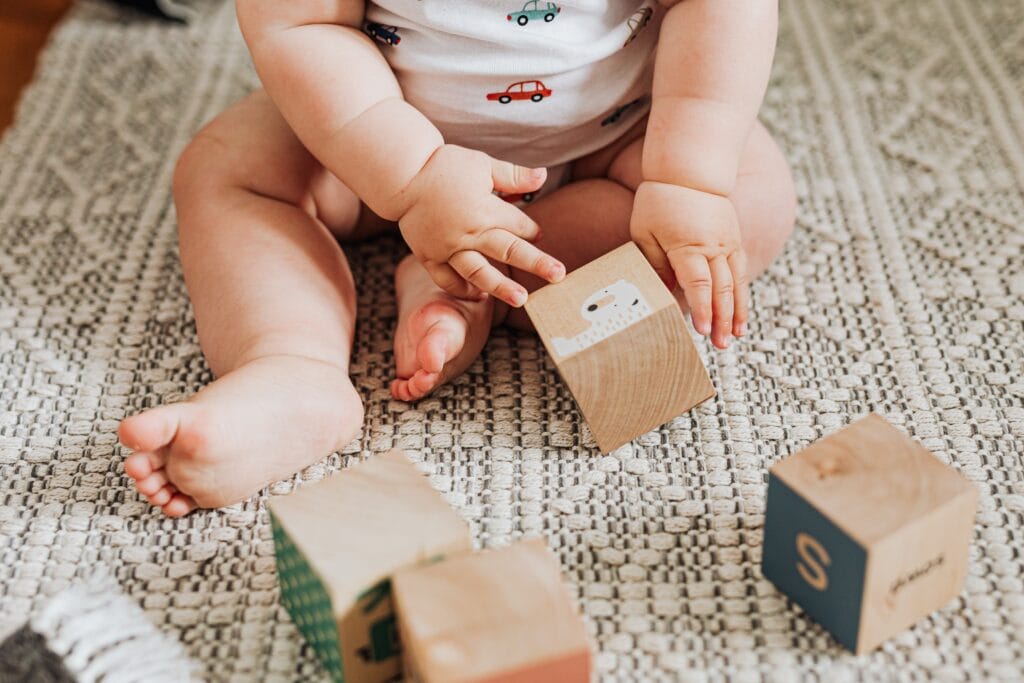
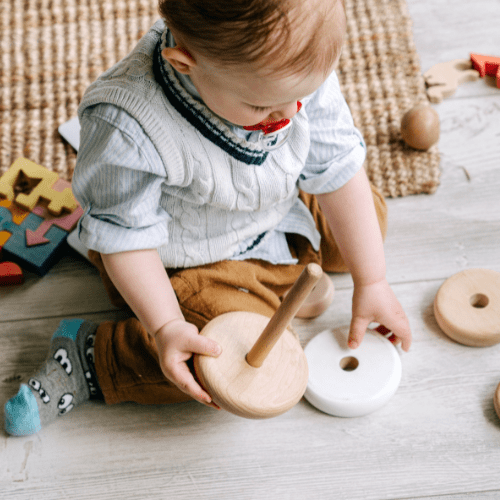
Baby Steps Classes
Did you ever wonder if your baby is progressing at the right pace? Are they crawling or rolling over at the right time? Eating, sleeping or playing in a way that helps their brain and body develop?
Oona offers a Baby Steps mom and baby class online that is led by our occupational therapists, and may be covered by your insurance. These small groups are a perfect opportunity to meet other parents in the community and support one another (bonus: it may be covered by your insurance!).
Baby Steps Level 1 is for ages 6 weeks – 6 months
Baby Steps Level 2 is for ages 6 months – 1 year old
Common Questions About Pediatric Occupational Therapy
Your baby may benefit from an occupational therapy assessment if you and/or your baby’s pediatrician has concerns about developmental delays in the area of motor skills, feeding or cognitive skills.
The assessment will provide an understanding of your baby’s strengths and challenges. Treatment will focus on strategies to teach and progress your baby in learning a new skill.
You do not need a referral to see an occupational therapist. If you have concerns about your baby’s development, feel free to contact the therapist to discuss the possibility of an assessment.
Please check with your insurance provider to see if you have coverage.
At Oona, we focus on pediatric occupational therapy for newborns to toddlers (age 0 to 2 years).
What’s the difference between infant physical therapy and infant occupational therapy?
In the most simple terms, Physical Therapists (PT) specialize in gross motor issues and development. While Occupational Therapists (OT) focuses on the issues and development for occupation, which for babies is mainly play, sleeping and eating. There are many areas that affect occupation, such as gross motor, fine motor, sensory, and cognitive skills.
There is a lot of overlap between OTs and PTs because gross motor and movement is a big component of development for babies. For example, a 5-month-old won’t be able to engage in play if they are not strong enough to roll (gross motor), but the baby’s play can also be affected by their cognitive abilities, sensory abilities, and fine motor skills.
An OT will work on all areas of development towards the goal of increased play, but a PT will likely focus on a goal like increase strength for rolling. OTs are also a better fit if there are issues around feeding (ie. chewing, swallowing or sensory-related).
During the first visit, your occupational therapist will review your baby’s medical history and discuss your concerns. An assessment of your baby’s skills will be completed by a combination of formal testing and observations through play. At the end of the session the therapist will provide an analysis and recommend treatment options. Treatment is always in collaboration with the family and can include returning for therapy or a home program.
Follow-up sessions can vary depending on your baby’s treatment plan.. Babies who are returning for therapy will work one-on-one with the therapist to develop skills; parents can observe and practice these hands-on techniques. Some babies will be re-assessed and introduced to new activities for a home program. Everything is tailored to meet the family’s and baby’s needs.
Progress depends on your baby’s delays, diagnosis and treatment. Usually we start seeing some improvement within 3 to 4 weeks of starting a treatment plan.
Pediatric occupational therapy focuses on occupation as the goal therapy for a baby. Treatment for an older child will differ because occupational and developmental stages are quite different. An OT goal for a baby may be to work on fine motor skills so the baby can reach and play with a toy above his/her head. While an OT goal for a child in school would be to increase fine motor skills so that the child can hold his/her pencil to write their name.
We can provide an itemized occupational therapy receipt at the end of the one-on-one occupational therapy session or the Baby Steps workshop series for you to submit to your extended health insurance plan. Please note that every health insurance is different and you can check to see if you have coverage.
Common Questions About Virtual Occupational Therapy
Paediatric OT services are available to you safely and virtually! If you have concerns about whether your baby is reaching their developmental milestones or if you are having difficulties helping your child transition to solids we can help via online sessions.
You do not need a referral to see an occupational therapist. If you have concerns about your baby’s development and believe an occupational therapist can address them, feel free to contact us or book an assessment online.
Services may be covered under your health plan – please check with your insurance company for details.
After you schedule your appointment, the occupational therapist will contact you to discuss your concerns and help you prepare for the scheduled appointment. In most cases, the therapist will have you prepare a play area or feeding area for your baby where the camera will be set up for observations.
After a detailed conversation with the therapist, you will be taken through step by step instructions on how to set up activities for your baby so the therapist can observe their skills during structured play activities. The observations, along with your knowledge of your baby’s behaviour, will provide a lot of information regarding his/her development.
In follow-up sessions, you can expect the therapist to contact you ahead of time to inform you of the activities that will be completed and what you need to prepare for those activities. During the session the therapist will guide you through a series of activities for therapeutic skill building. All activities will be tailored to your baby’s needs and goals.
Likely not! The best tool to stimulate your baby’s or child’s development is usually their parent’s love and interaction, so you are the most important thing to the sessions. If we need other toys or equipment we can likely use what you already have.
Common Questions About Occupational Therapy
If you are having challenges in any area of your life or find you are unable to fulfill any of your life roles to your satisfaction you may benefit from an occupational therapy assessment.
The assessment will provide an understanding of your strengths and challenges. The Occupational Therapist will also use a combination of standardized assessments, observation, and listening to understand how your life has been impacted. Collaboration will take place to develop a personalized treatment plan that uses strengths to address your needs and increase your performance and satisfaction in your life roles.
You do not need a referral to see an occupational therapist. If you have questions about how an Occupational Therapist can help you, feel free to contact the therapist to discuss the possibility of an assessment.
Please check with your insurance provider to see if you have coverage.
At Oona, we focus on adult occupational therapy as well as pediatric occupational therapy for newborns to toddlers (age birth to school-age years).
In the most simple terms, Physical Therapists (PT) specialize in gross motor issues and development. While Occupational Therapists (OT) focuses on the issues and development for occupation, which for babies is mainly play, sleeping and eating. There are many areas that affect occupation, such as gross motor, fine motor, sensory, and cognitive skills.
There is a lot of overlap between OTs and PTs because gross motor and movement is a big component of development for babies. For example, a 5-month-old won’t be able to engage in play if they are not strong enough to roll (gross motor), but the baby’s play can also be affected by their cognitive abilities, sensory abilities, and fine motor skills.
An OT will work on all areas of development towards the goal of increased play, but a PT will likely focus on a goal like increased strength for rolling. OTs are also a better fit if there are issues around feeding (ie. chewing, swallowing or sensory-related).
During the first visit, your occupational therapist will review your medical history and discuss your concerns. An assessment will be completed by a combination of listening, understanding your story, and how your life has been impacted. This assessment will vary based on need. At the end of the session the therapist will provide an analysis and recommend treatment options. Treatment is always in collaboration with you.
Follow-up sessions can vary depending on your treatment plan. This can include reviewing recommended treatments, treatment goals, and discussing progress. Some clients might be re-assessed and introduced to new approaches depending on needs and progress.
Progress depends on delays, diagnosis and treatment. Usually, we start seeing some improvement within 3 to 4 weeks of starting a treatment plan.
We can provide an itemized occupational therapy receipt at the end of the one-on-one occupational therapy session for you to submit to your extended health insurance plan. Please note that every health insurance is different and you can check to see if you have coverage.
Cancellation and Late Policies
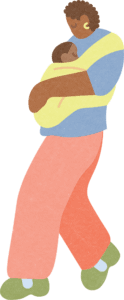
Direct insurance billing
Oona works with insurance companies to do online billing for treatments, whenever possible. Simply ask if your insurance company is compliant when you book your appointment.

